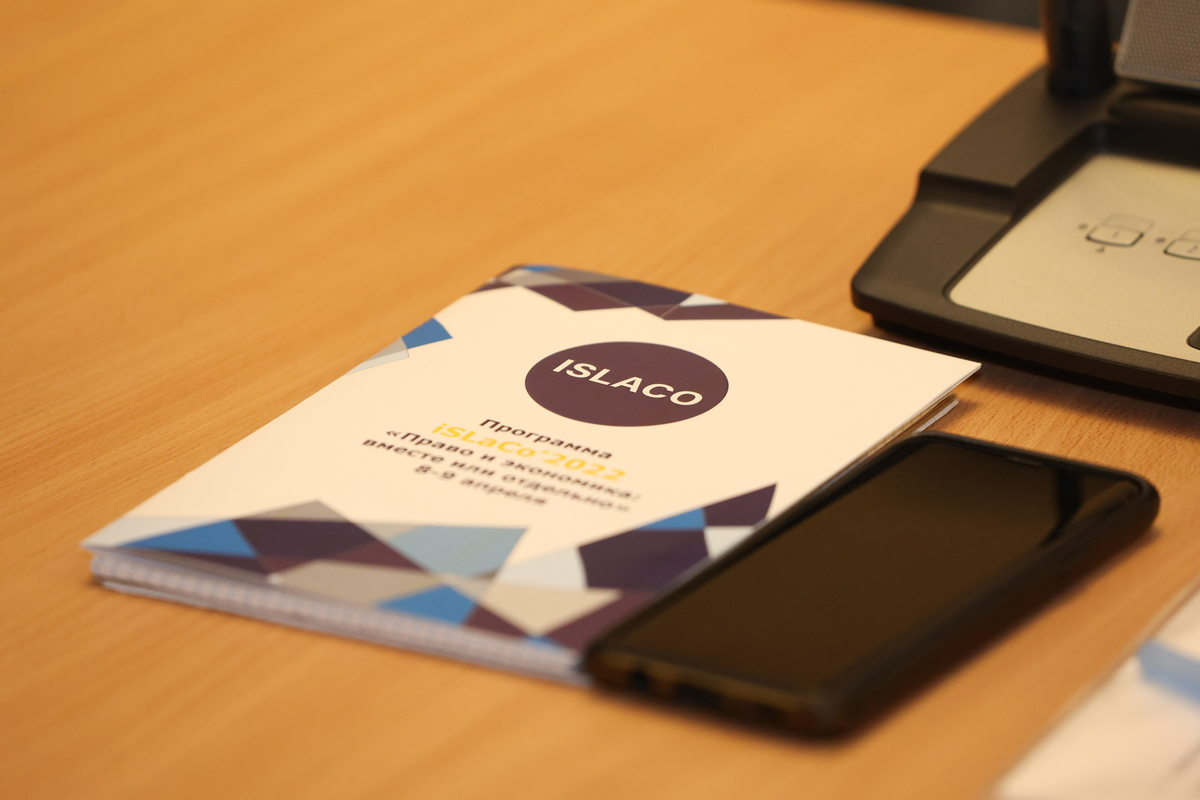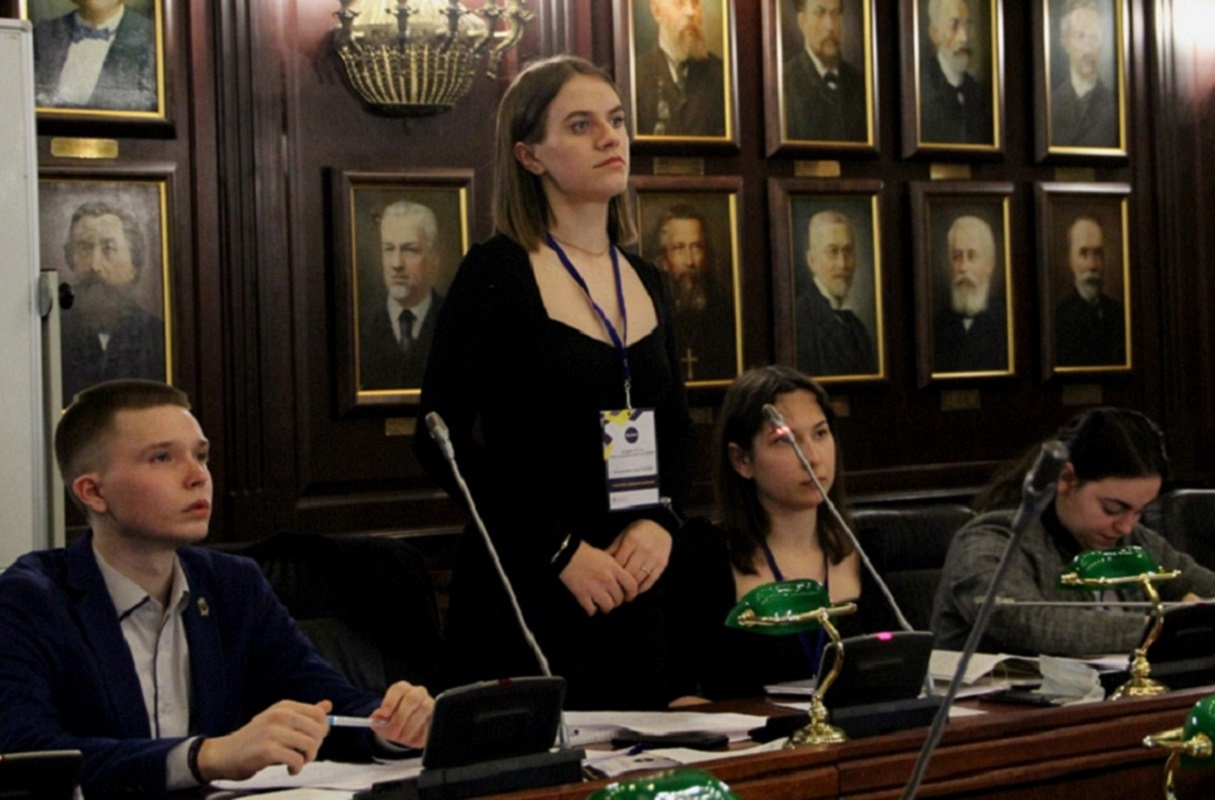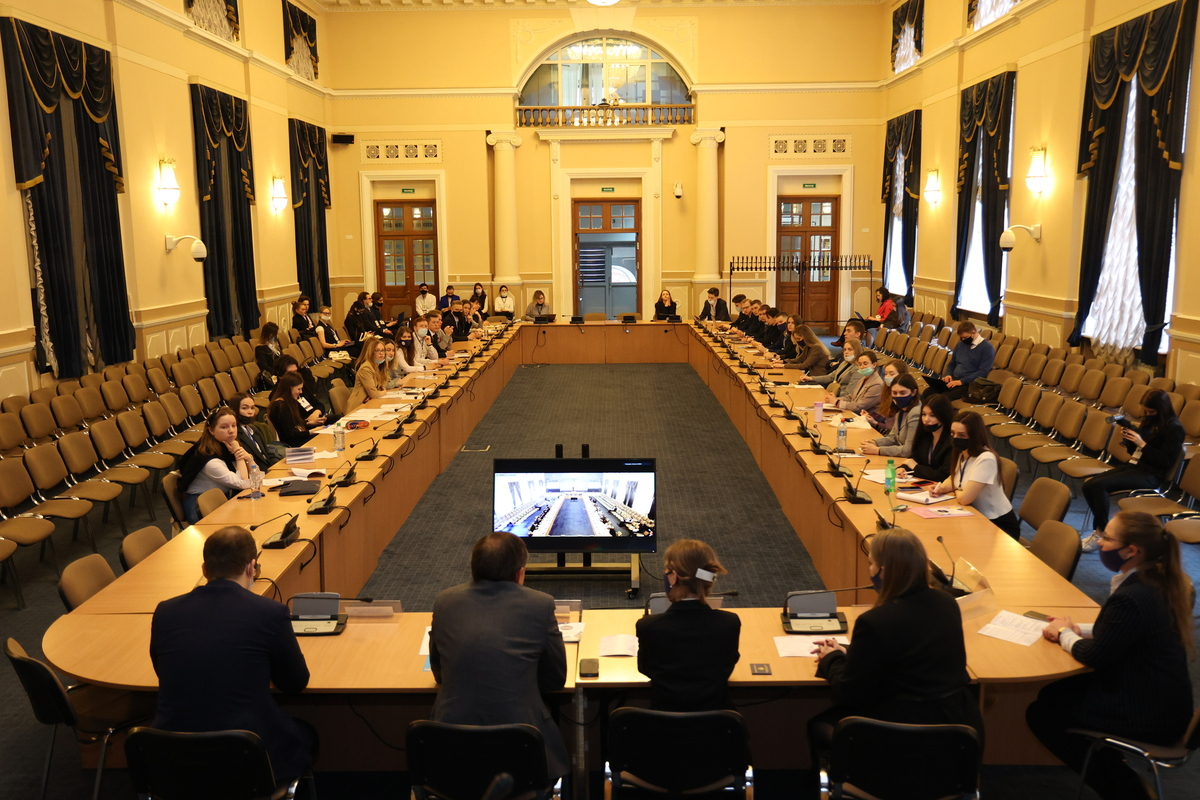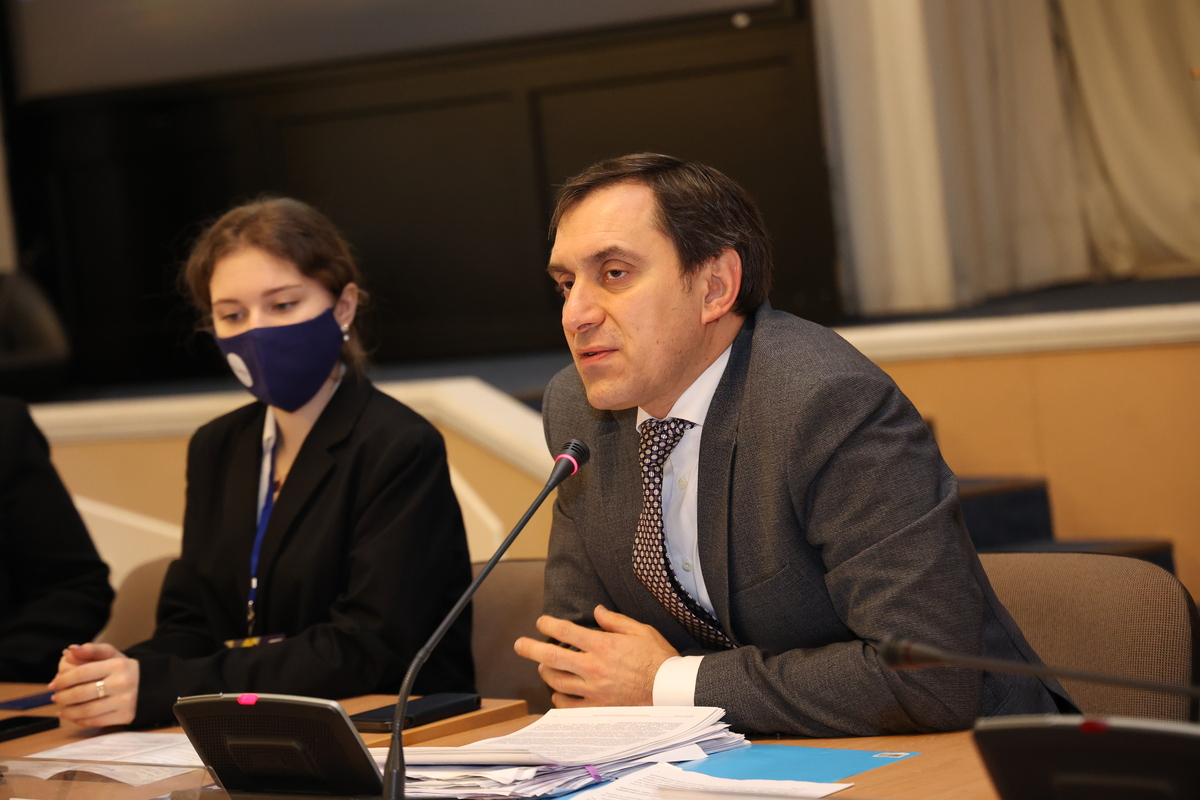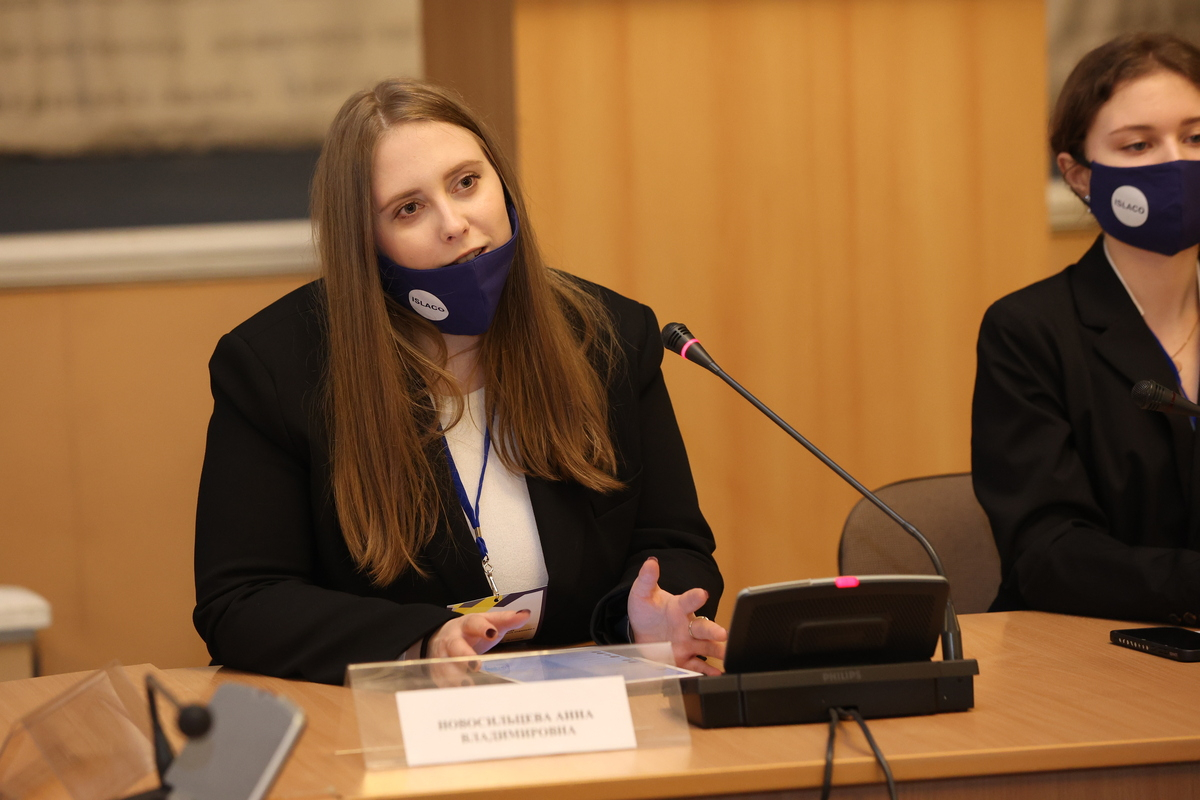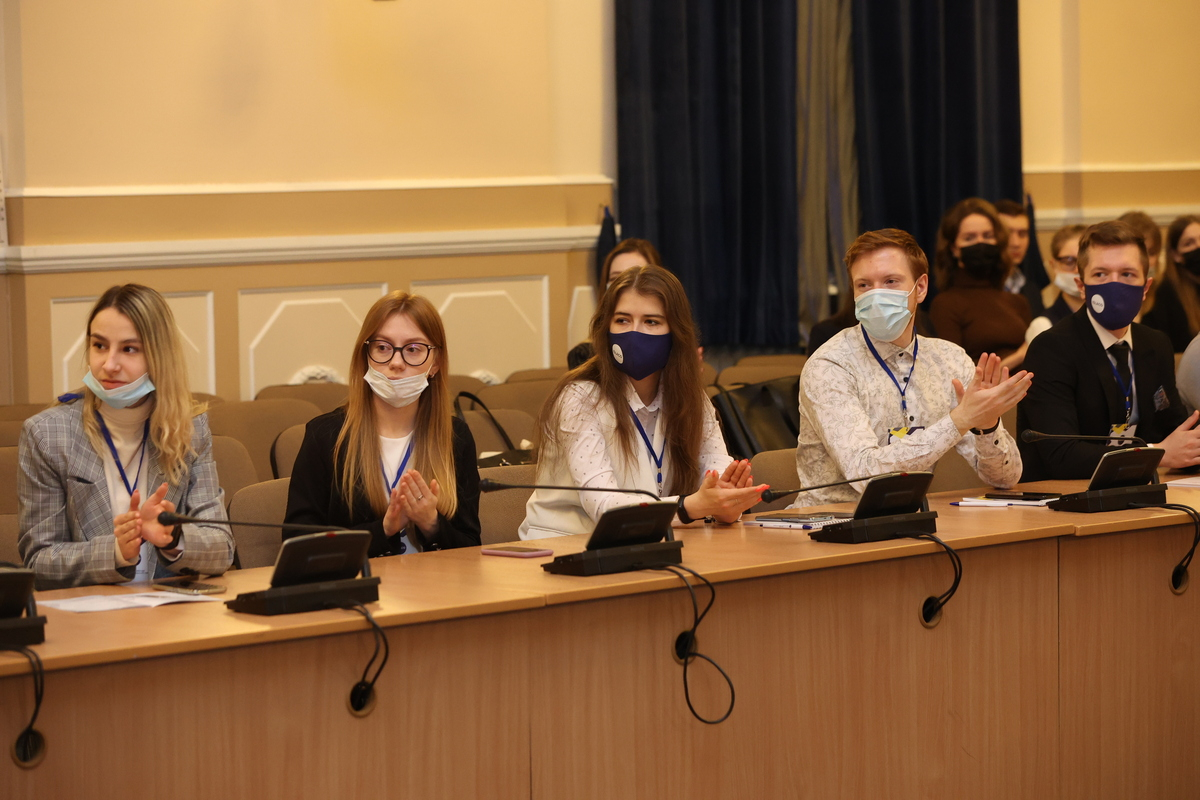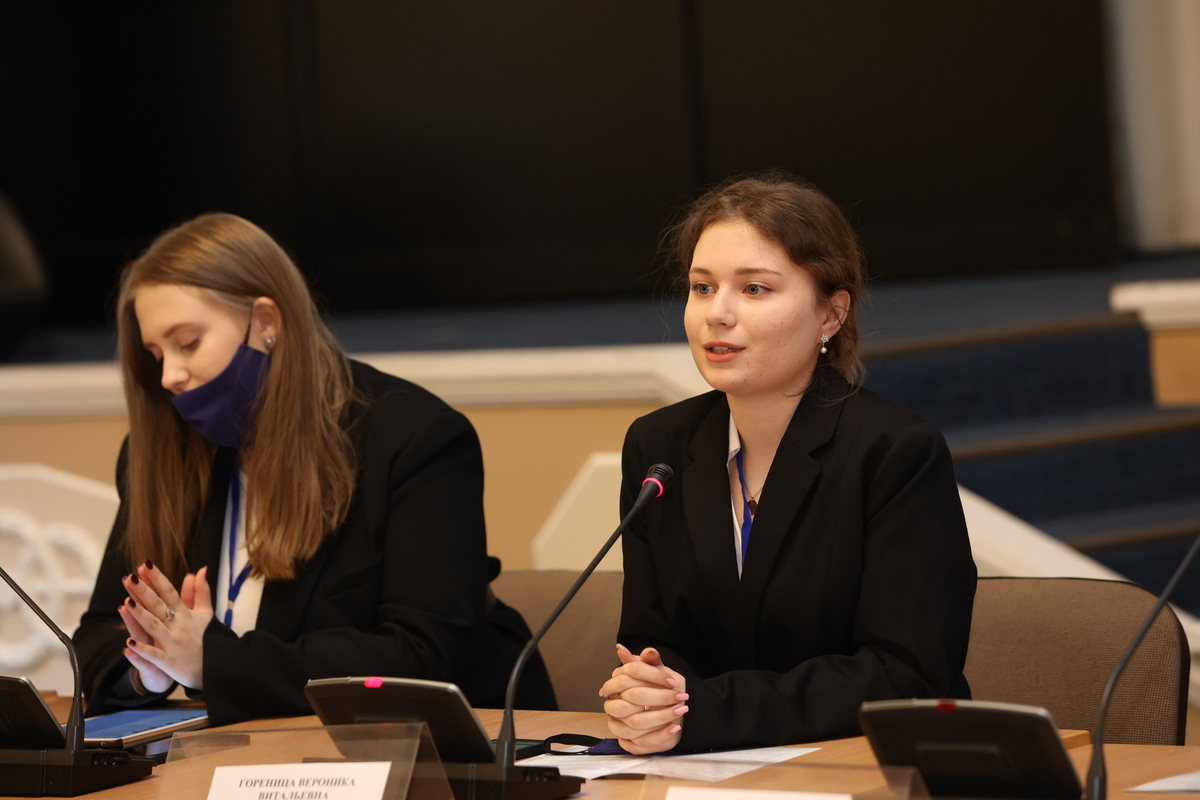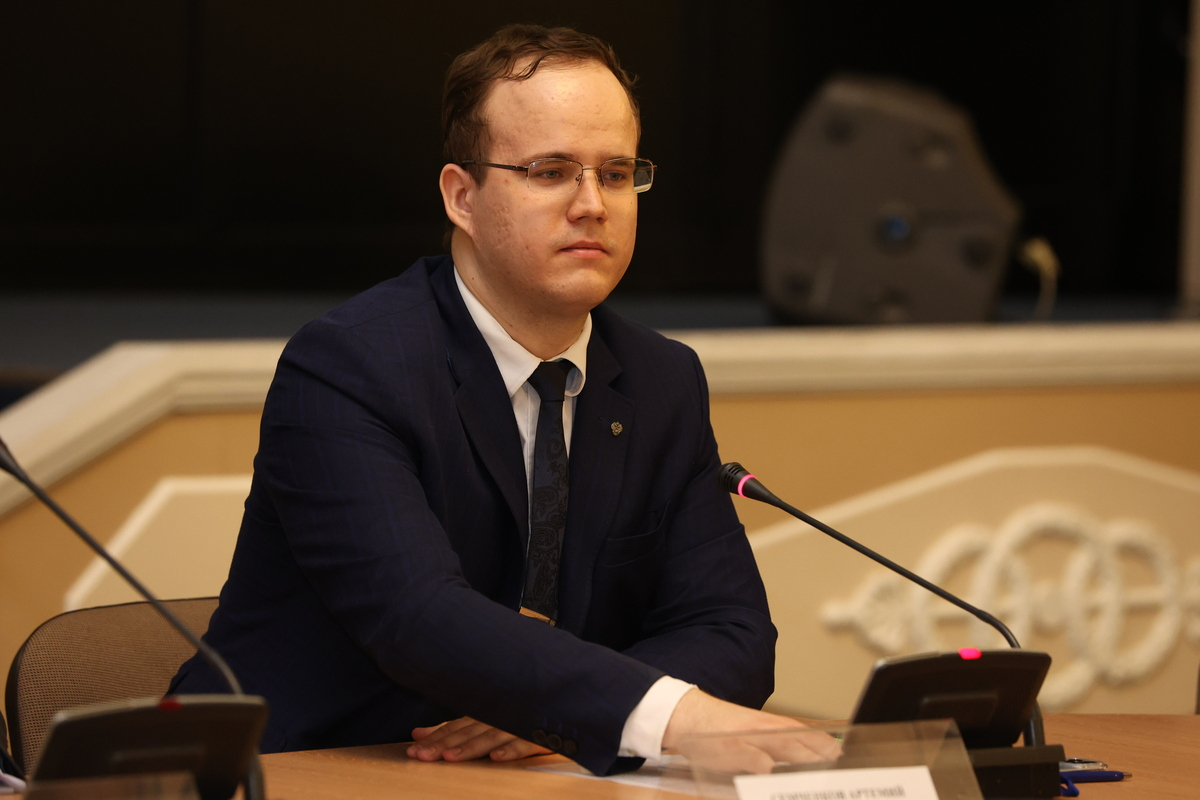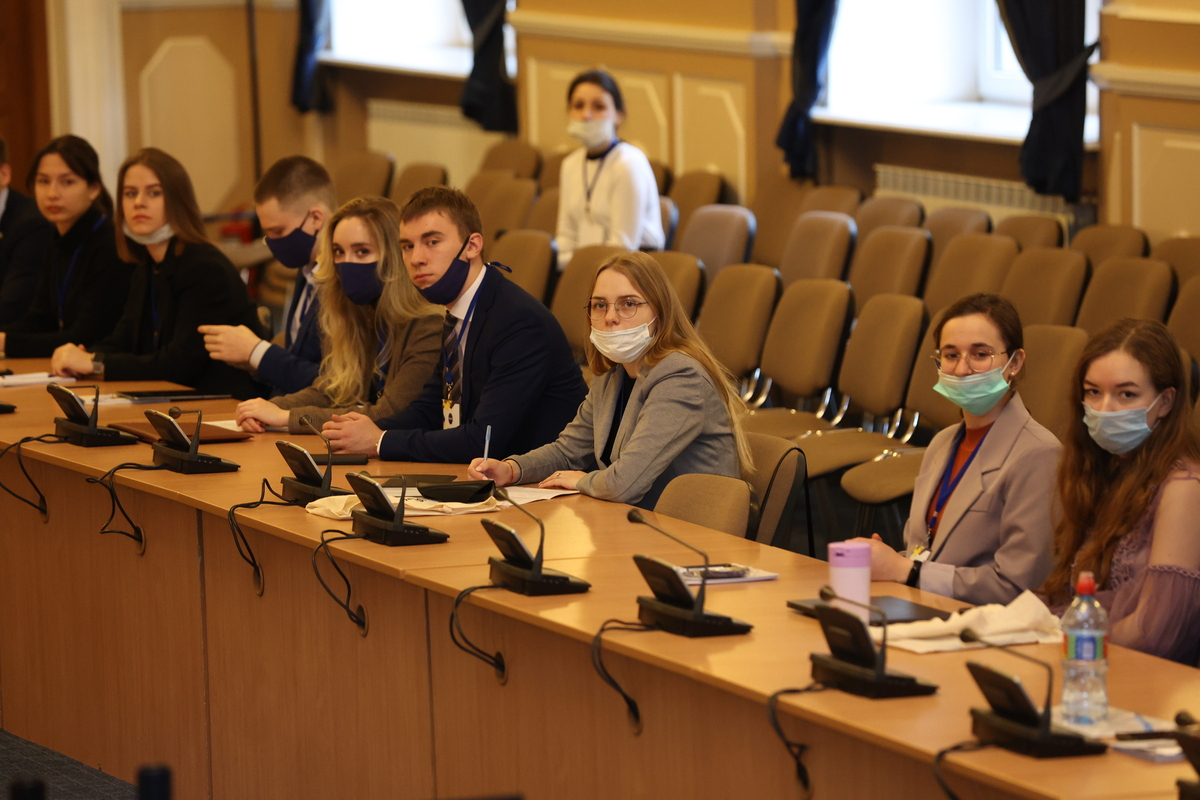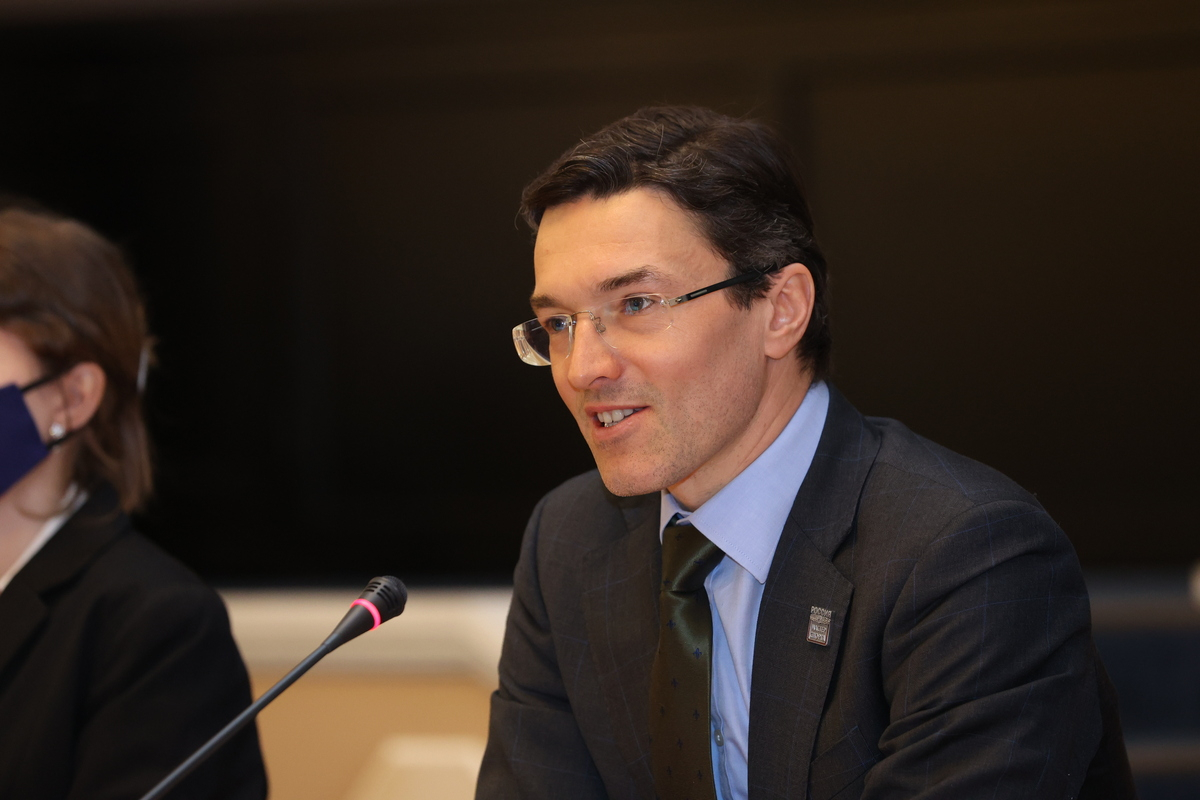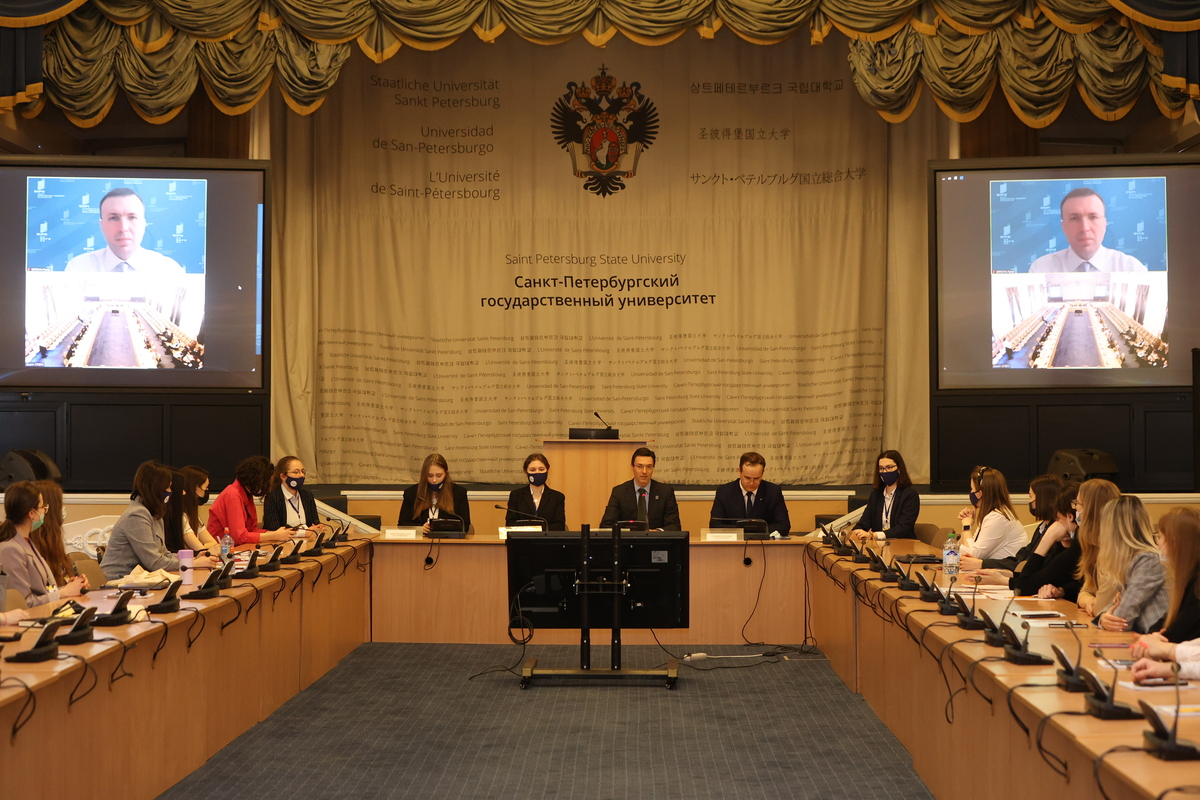St Petersburg University hosts first ever iSLaCo Moot Court on intellectual property law
The 21st International Student Law Conference (iSLaCo) has been held recently at St Petersburg University. Students from Russian and foreign universities, along with young researchers (more than 200 people in all), came together both in person and online for lectures and master classes conducted by the country’s leading lawyers.
The theme of the conference this year was ‘Law and Economics: Together or Apart?’. Sergei Belov, Dean of the Faculty of Law at St Petersburg University, pointed out that the question mark at the end of the theme could be left off since the law cannot exist without economics, nor can economics exist without the law. ‘It is at the very nexus of different fields and disciplines that interesting discoveries and new knowledge emerge. The current stage of development in both the social and the natural sciences is characterised by interdisciplinary research and collaboration. What is more, the legal profession requires the most diverse knowledge and erudition in various fields of study.’
The interdisciplinary approach is used at St Petersburg University in the development of master’s programmes. For example, prospective students can choose to apply to the "Bankruptcy Law" programme or the "Lawyer in the Field of the Financial Market (Financial Lawyer)" programme.
Pavel Spitsyn, Director of the Russian Office of the World Intellectual Property Organization (WIPO), said that today the competitive advantage in the market belongs to those who understand how to create innovation. While in the past it was those with access to raw materials who were in the vanguard, now it is those with access to development and technology. According to the S&P 500 market capitalisation index, intangible assets now average about 90% of a company’s value. This value depends directly on control over technology, industrial designs and brands. Today, the total value of intangible assets in the world amounts to $65 trillion. The protection of such assets, which are the results of intellectual activity, leads to the creation of new jobs, the development of production, the introduction of innovation, and, by extension, the economic, scientific and technological development of countries.
In recent years, social media have been developing rapidly. Associate Professor Vladislav Arkhipov, Head of the Department of Theory and History of State and Law at St Petersburg University, has proposed that we imagine social media as an iceberg. What is visible to the standard user, only a small part of the iceberg, is the user content that is familiar to all. However, the large, invisible part is the processes of developing personal data, essentially for commercial purposes.
This is the main asset of social networks today. From the very beginning, social media and the Internet as a whole were aimed at deriving revenue from advertising.
The commercial value of the advertising greatly increased if personal data were used to channel it to certain users and adapt the advertising material for them.
Associate Professor Vladislav Arkhipov, Head of the Department of Theory and History of State and Law at St Petersburg University
Today, advertising can be calibrated and primed to each user to such an extent that it will definitely hit the mark. To achieve this effect, companies are launching a huge data processing tool. The race for data is triggered above all by economic reasons. This mass of data represents a tremendous value thanks to the large volumes and the possibility of quickly and effectively processing them with the help of automated systems. Big Data is used for analytics, forecasting and automation of business processes.
One of the major trends in social media across the globe is the monopolisation of markets and hence the monopolisation of Big Data. Using antitrust legislation to rein in the Internet goliaths has been discussed for several years now.
The participants in the conference were also told about: the indexation of court-awarded damages; reform of the legislation on bankruptcy; interim measures in the judicial process and enforcement proceedings; risks and prospects in the conclusion of international contracts on the export and import of goods; and tax disputes.
During the conference, oral rounds of a contest in the format of a mock trial (I moot court iSLaCo) were held. Even though the judicial contest was held for the first time, applications were submitted for participation by 67 teams from different regions of the country. Teams from St Petersburg University, the National Research University Higher School of Economics, Moscow State University and Ural State Law University played in the semi-finals, with the latter two of them making it into the finals.
The participants in the contest were asked to resolve the legal issues involved in ownership of the company name and trademark of a company formerly owned by spouses, and also the jurisdiction of the case and the imposition of interim measures. Victory in the first iSLaCo moot court was secured by the students from Moscow.


